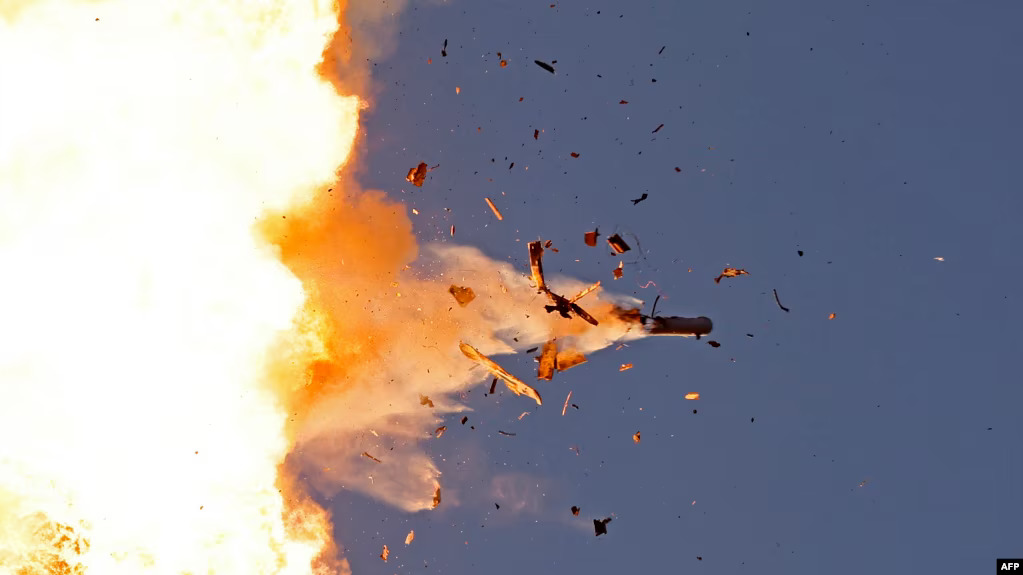TEL AVIV: Tensions heightened in the Middle East Sunday with Israel’s military and Hezbollah militants in Lebanon launching hundreds of strikes against each other and then, as the barrage seemingly ended, vowed to continue the fight.
“We are striking Hezbollah with surprising, crushing blows,” Israeli Prime Minister Benjamin Netanyahu told a Cabinet meeting.
“This is another step towards changing the situation in the north and safely returning our residents to their homes. And, I repeat, this is not the final word.”
Hezbollah described its return attacks against Israel as the first stage of retaliatory strikes for the Israeli assassination last month in Beirut of Fouad Shukur, a Hezbollah commander Israel blamed for an attack that killed 12 children and teenagers on a football field.
Hezbollah said new attacks would target sites deeper into Israel but that “military operations for today have been completed.”
Meanwhile, U.S. Defense Secretary Lloyd Austin ordered two aircraft carrier strike groups to be positioned in the Middle East, the Pentagon said Sunday, strengthening the U.S. military presence amid the regional tensions.
The announcement, made in a summary of a call between Austin and Israeli defense chief Yoav Gallant, represents a shift.
The Pentagon had initially deployed the Abraham Lincoln aircraft carrier strike group to the region with a plan to replace the Theodore Roosevelt carrier strike group.
The chairman of the Joint Chiefs of Staff, Gen. CQ Brown, is on a visit to the region that is expected to take him to Israel, Egypt and Jordan.
The Israeli and Hezbollah attacks did not appear to ignite a broader Mideast war, but old issues remained unresolved.
In Cairo on Sunday, Egypt was hosting new high-level negotiations to try to reach a cease-fire between Israel and Hamas militants to end more than 10 months of fighting in Gaza and an agreement on the release of 100 or so hostages Hamas is holding. The cease-fire talks have been stalemated for months.
(VOA)







Comment